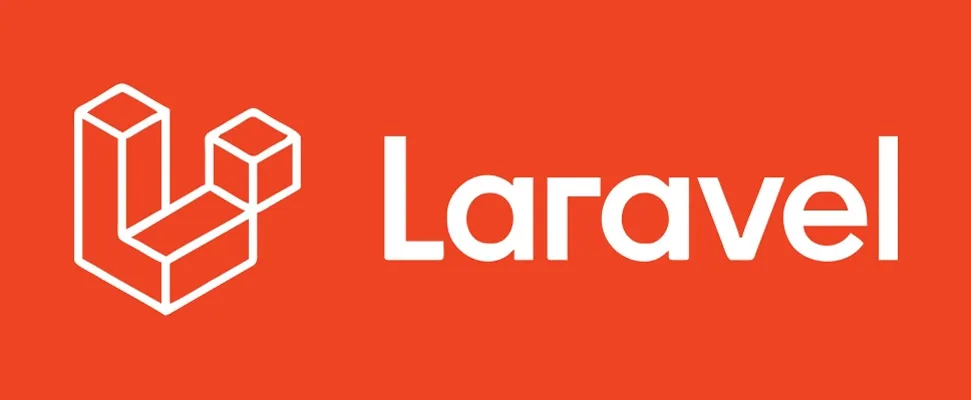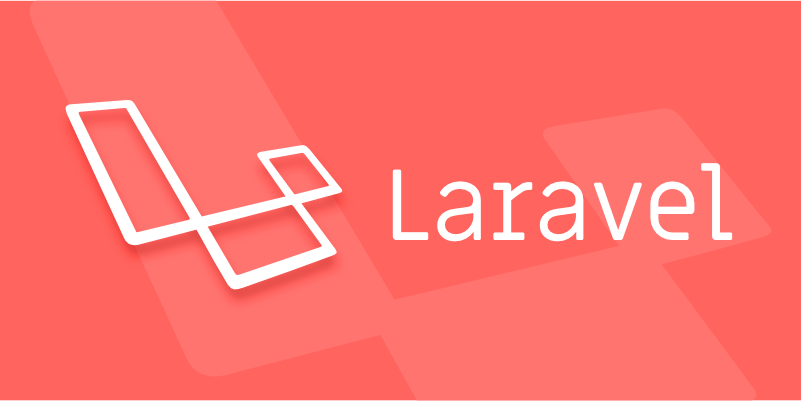Sending different types of notifications with Laravel
Jul 06, 2025 am 12:52 AMLaravel provides a clean and flexible way to send notifications via multiple channels like email, SMS, in-app alerts, and push notifications. You define notification channels in the via() method of a notification class, and implement specific methods like toMail(), toDatabase(), or toVonage() for each channel. 1. Use php artisan make:notification to create a notification class. 2. Specify delivery channels in the via() method. 3. Implement channel-specific methods such as toMail(), toDatabase(), or toVonage(). 4. For database notifications, run php artisan notifications:table and use unreadNotifications to retrieve and mark notifications as read. 5. For SMS, integrate with Vonage or Twilio, validate phone numbers, and format messages accordingly. This system allows customization per user and ensures smooth multi-channel notification handling.

If you're using Laravel and want to send different types of notifications — like email, SMS, in-app alerts, or even push notifications — there's a clean and flexible way to do it. Laravel’s built-in notification system makes this easy by letting you define multiple channels for each notification type.

How Laravel Notifications Work
At the core, Laravel notifications are sent through "channels". Each notification can be delivered via one or more channels like mail, database, broadcast, sms, etc. When you create a notification class using Artisan (php artisan make:notification), Laravel generates a file where you define how that notification should look and behave across different channels.

The key method is via(), which tells Laravel which delivery methods to use:
public function via($notifiable)
{
return ['mail', 'database'];
}You can customize this per notifiable user or model if needed. For example, some users might prefer SMS while others get email.

Common Notification Channels You Can Use
There are several default channels you can work with right out of the box:
- Mail – Send an email using the
toMail()method. - Database – Store the notification in your database using
toDatabase(). - Broadcast – Push real-time notifications using Laravel Echo and WebSockets.
- Slack – Send messages directly to Slack using
toSlack(). - SMS (via third-party services) – Usually handled with packages like Laravel Notifynder or Nexmo driver.
Each channel requires its own method in the notification class. For example, to send an email, you'll need a toMail() method returning a MailMessage instance.
If you're adding SMS, you’ll likely integrate with a service like Twilio or Vonage, and use their Laravel SDKs to format and send messages.
Setting Up Database Notifications
Storing notifications in the database is useful when you want users to see a history of what’s been sent. To enable this, first run:
php artisan notifications:table php artisan migrate
This creates a notifications table linked to your notifiable model (usually User). In your notification class, define the toDatabase() method:
public function toDatabase($notifiable)
{
return [
'message' => 'You have a new follower.',
'link' => url('/profile/'.$notifiable->id),
];
}Then, in your controller or front-end logic, you can fetch unread notifications like this:
$notifications = auth()->user()->unreadNotifications;
And mark them as read when displayed:
auth()->user()->unreadNotifications->markAsRead();
This is helpful for dashboards or dropdown menus showing recent activity.
Sending SMS Notifications
Laravel doesn’t include SMS support by default, but it’s easy to add using the Vonage (formerly Nexmo) driver or a package like Laravel SMS or Twilio integration.
Once set up, you can use the via() method to include vonage or twilio:
public function via($notifiable)
{
return ['vonage'];
}Then implement the toVonage() method:
public function toVonage($notifiable)
{
return (new VonageMessage)
->content('Your order has shipped!');
}Make sure your notifiable model has a routeNotificationForVonage() method returning the phone number.
Some tips:
- Always validate phone numbers before sending.
- Keep message content short and clear.
- Consider rate limits and retry strategies.
That’s basically it. Once you understand how channels work and how to structure each notification, sending different types works smoothly. Just plug in the right drivers, format your messages accordingly, and let Laravel handle the rest.
The above is the detailed content of Sending different types of notifications with Laravel. For more information, please follow other related articles on the PHP Chinese website!

Hot AI Tools

Undress AI Tool
Undress images for free

Undresser.AI Undress
AI-powered app for creating realistic nude photos

AI Clothes Remover
Online AI tool for removing clothes from photos.

Clothoff.io
AI clothes remover

Video Face Swap
Swap faces in any video effortlessly with our completely free AI face swap tool!

Hot Article

Hot Tools

Notepad++7.3.1
Easy-to-use and free code editor

SublimeText3 Chinese version
Chinese version, very easy to use

Zend Studio 13.0.1
Powerful PHP integrated development environment

Dreamweaver CS6
Visual web development tools

SublimeText3 Mac version
God-level code editing software (SublimeText3)

Hot Topics
 How to develop AI intelligent form system with PHP PHP intelligent form design and analysis
Jul 25, 2025 pm 05:54 PM
How to develop AI intelligent form system with PHP PHP intelligent form design and analysis
Jul 25, 2025 pm 05:54 PM
When choosing a suitable PHP framework, you need to consider comprehensively according to project needs: Laravel is suitable for rapid development and provides EloquentORM and Blade template engines, which are convenient for database operation and dynamic form rendering; Symfony is more flexible and suitable for complex systems; CodeIgniter is lightweight and suitable for simple applications with high performance requirements. 2. To ensure the accuracy of AI models, we need to start with high-quality data training, reasonable selection of evaluation indicators (such as accuracy, recall, F1 value), regular performance evaluation and model tuning, and ensure code quality through unit testing and integration testing, while continuously monitoring the input data to prevent data drift. 3. Many measures are required to protect user privacy: encrypt and store sensitive data (such as AES
 How to set environment variables in PHP environment Description of adding PHP running environment variables
Jul 25, 2025 pm 08:33 PM
How to set environment variables in PHP environment Description of adding PHP running environment variables
Jul 25, 2025 pm 08:33 PM
There are three main ways to set environment variables in PHP: 1. Global configuration through php.ini; 2. Passed through a web server (such as SetEnv of Apache or fastcgi_param of Nginx); 3. Use putenv() function in PHP scripts. Among them, php.ini is suitable for global and infrequently changing configurations, web server configuration is suitable for scenarios that need to be isolated, and putenv() is suitable for temporary variables. Persistence policies include configuration files (such as php.ini or web server configuration), .env files are loaded with dotenv library, and dynamic injection of variables in CI/CD processes. Security management sensitive information should be avoided hard-coded, and it is recommended to use.en
 How to make PHP container support automatic construction? Continuously integrated CI configuration method of PHP environment
Jul 25, 2025 pm 08:54 PM
How to make PHP container support automatic construction? Continuously integrated CI configuration method of PHP environment
Jul 25, 2025 pm 08:54 PM
To enable PHP containers to support automatic construction, the core lies in configuring the continuous integration (CI) process. 1. Use Dockerfile to define the PHP environment, including basic image, extension installation, dependency management and permission settings; 2. Configure CI/CD tools such as GitLabCI, and define the build, test and deployment stages through the .gitlab-ci.yml file to achieve automatic construction, testing and deployment; 3. Integrate test frameworks such as PHPUnit to ensure that tests are automatically run after code changes; 4. Use automated deployment strategies such as Kubernetes to define deployment configuration through the deployment.yaml file; 5. Optimize Dockerfile and adopt multi-stage construction
 How to build a content payment platform through PHP How to implement PHP paid reading system
Jul 25, 2025 pm 06:30 PM
How to build a content payment platform through PHP How to implement PHP paid reading system
Jul 25, 2025 pm 06:30 PM
To build a PHP content payment platform, it is necessary to build a user management, content management, payment and permission control system. First, establish a user authentication system and use JWT to achieve lightweight authentication; second, design the backend management interface and database fields to manage paid content; third, integrate Alipay or WeChat payment and ensure process security; fourth, control user access rights through session or cookies. Choosing the Laravel framework can improve development efficiency, use watermarks and user management to prevent content theft, optimize performance requires coordinated improvement of code, database, cache and server configuration, and clear policies must be formulated and malicious behaviors must be prevented.
 Explain Laravel Eloquent Scopes.
Jul 26, 2025 am 07:22 AM
Explain Laravel Eloquent Scopes.
Jul 26, 2025 am 07:22 AM
Laravel's EloquentScopes is a tool that encapsulates common query logic, divided into local scope and global scope. 1. The local scope is defined with a method starting with scope and needs to be called explicitly, such as Post::published(); 2. The global scope is automatically applied to all queries, often used for soft deletion or multi-tenant systems, and the Scope interface needs to be implemented and registered in the model; 3. The scope can be equipped with parameters, such as filtering articles by year or month, and corresponding parameters are passed in when calling; 4. Pay attention to naming specifications, chain calls, temporary disabling and combination expansion when using to improve code clarity and reusability.
 How to use PHP combined with AI to analyze video content PHP intelligent video tag generation
Jul 25, 2025 pm 06:15 PM
How to use PHP combined with AI to analyze video content PHP intelligent video tag generation
Jul 25, 2025 pm 06:15 PM
The core idea of PHP combining AI for video content analysis is to let PHP serve as the backend "glue", first upload video to cloud storage, and then call AI services (such as Google CloudVideoAI, etc.) for asynchronous analysis; 2. PHP parses the JSON results, extract people, objects, scenes, voice and other information to generate intelligent tags and store them in the database; 3. The advantage is to use PHP's mature web ecosystem to quickly integrate AI capabilities, which is suitable for projects with existing PHP systems to efficiently implement; 4. Common challenges include large file processing (directly transmitted to cloud storage with pre-signed URLs), asynchronous tasks (introducing message queues), cost control (on-demand analysis, budget monitoring) and result optimization (label standardization); 5. Smart tags significantly improve visual
 Using Queues for Background Processing in Laravel.
Jul 26, 2025 am 05:45 AM
Using Queues for Background Processing in Laravel.
Jul 26, 2025 am 05:45 AM
Tohandletime-consumingtasksinLaravelwithoutdelayingtheuserexperience,usequeuesforbackgroundprocessing.Laravelqueuesallowyoutodeferheavytaskslikesendingemailsorimageprocessingbypushingjobsontoaqueue,whicharethenprocessedlaterbyaworker.1.Pushajobtotheq
 How to refactor a large controller in Laravel?
Jul 24, 2025 am 03:59 AM
How to refactor a large controller in Laravel?
Jul 24, 2025 am 03:59 AM
First, the business logic should be extracted into the service class. 1. Create the service class to process complex logic. The controller is only responsible for HTTP requests and responses; 2. Use FormRequests for verification and authorization, and move rules and permission checks out of the controller; 3. Split large controllers according to responsibilities, such as splitting the UserController into UserAccountController, UserPreferencesController and UserSecurityController; 4. Optionally use the warehouse pattern to abstract data access logic to improve testability and decoupling; 5. Use APIResources or ViewComposes to respond uniformly






